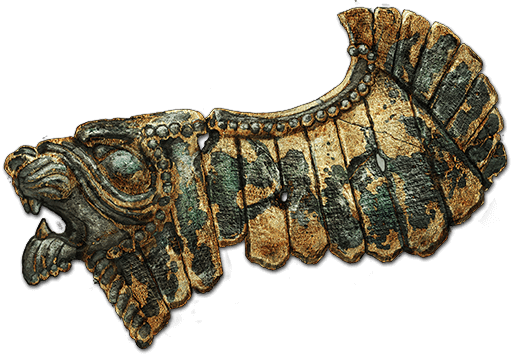
Shelby Chartrand, Augstat, Hesse
Konig Gerhard Von Rusdorf and his entire family, including the youngest heir to the throne, were found murdered in what court officials are describing as a “massacre meant to leave not a single Rusdorf alive.”
Rusdorf, who assumed the crown of Hesse less than a month ago, was found dead alongside the corpses of the konigin and their four children, as well as the entire Noble Order of the Golden Antlers, the konig’s royal guards, and many castle attendants.
Sources call the scene a “bloodbath.”
The bodies were found the morning after the konig’s grand Coronation Ball, a heavily attended star-studded gala the night prior. “It was the event of the season. Eager we were—all of us—to see the new royal couple,” said Frau Penelope, a socialite who had attended the ball, as she put together a makeshift memorial outside Rusdorf estate main gates. “The poor dears. Who could perform such horrific acts?”
Immediately following the discovery of the victims, the Hecks descended upon Rusdorf Palast, locking it down.
Grand Master Kane Kurig, the commander of the Hecks, spoke on behalf of the military. “Every Hessen noble, socialite, and peer of the realm—from the Guard to Niesse—was present to be near the new royals. This included Master Siron Kordaava, the father of the late emperor Marcosta Kordaava, and the governor himself, Hellwig Gustavus. When we ask who had opportunity, we have to answer: who didn’t?”
Many of the bodies were described as “unrecognizable” due to the nature of the violence, and a court insider who wished to remain anonymous said the konig was found decapitated and naked in his apartment. His eldest son, eighteen-year-old Adalwolf, had been disemboweled, the young man’s heart displayed on a nearby table. The youngest, daughter Wendelin, was allegedly strangled. She was just four years old.
“Politics is dirty business.” Kurig countered when asked about motive. “I can’t speculate on such things.”
Those not so guarded were quick to lay blame. Hermann von Kofin, a troubadour hired for the coronation festivities, was arrested and taken into custody, where he endured a twelve-hour interrogation and was later released without being charged.
“Me, a murderer? This is an outrage!” von Kofin stated afterward. “It was them assassin bastards, I’ll wager. The Black Daggers.”
Black Daggers allegedly had been present at the event. Hermann had announced each Hessen noble as they arrived at the ball and had a full account of the attendees. Pfalzgraf Lotari von Cronenberg had attended and has long been rumored to be the money behind the criminal organization known as the Black Daggers. His presence at the coronation ball has fueled speculation that the Black Daggers or other gangs were behind the assassinations.
Kurig dismissed this as “rumormongering.” He noted that nothing was stolen from the premises. Jewelry, weaponry, and art of inestimable value were all untouched in the late family’s quarters. The konig himself is said to have been wearing a number of precious stones that were left untouched after his assassination.
“Black Daggers are scoundrels and petty thieves. A murder of this magnitude is beyond their capability. No, there is no evidence,” Kurig said, “to support the notion that the Black Daggers or any other criminal enterprise was behind the killings.”
“No one’s come forward with any information about these murders,” he added. “No eyewitnesses, no survivors, and no confessors.”
The Hecks have been criticized for failing to provide sufficient security for the new royal family, but army officials noted the failure of the konig to relocate to Royal Isle as a key factor, one that increased the risk to the Rusdorf family. Master Kurig claimed to be among those who warned the new konig about security issues in Rusdorf Palast.
Royal Isle, the historical seat of konig rule for hundreds of years, has traditionally be considered one of the safest locations in all of Hesse due to its limited accessibility and extensive military presence.
Some say, however, that it would not have mattered where the Rusdorfs lived—the family, according to the more superstitious members of the konig’s court, was cursed.
“It’s just more nonsense,” Master Kurig said. “Unexplained deaths get explained most often by people with too much time on their hands. There are a lot of unexplained deaths in the Rusdorf family, so if you’re afraid of things that go bump in the night, you can explain them all.”
Konig Gerhard von Rusdorf was the last surviving member of his bloodline. With the deaths of all his full-blooded heirs, the immediate family line has been at least temporarily halted.
Rusdorf took the throne following the recent death of Konigin Gislinde. She died at the age of 88 after a reign most modern historians describe as peaceful and uneventful. Rusdorf’s assassination, coming so closely after that of Emperor Kordaava’s, has led to speculation at all levels of court as to the future of rulership not just of Hesse but of much of Chaldea.
The question on everyone’s mind is regarding who has the most to benefit from Rusdorf’s death. “The line of succession is severed, the Rusdorf dynasts are deceased,” said an anonymous source. “Naturally, the heir to the throne has the most to gain.”
“Look no further than Argos. The masterminds of this vile act are there,” said the same source. “Succession to the crown will come from Argos.”
Investigation into Argos revealed a niece of Konig Rusdorf, one who married into a noble Argos family and who has lived outside of Hesse most of her adult life. She is likely to be successor to the throne. Sofronia Von Rusdorf, whose name has yet to appear in any official statements, currently resides in Argos, the capital of Mycenae, in a home maintained by assets from the konig’s accounts. Repeated visits to her estate have been met with dismissal and have yielded no additional information about the konig’s niece as of this writing.
Speculation regarding the motive for murders range from an internal family squabble to a simple act of jealousy.
One of the konig’s last official acts was described by many royal attendants as the hallmark moment of the ball. A rare silk slave beauty, never before seen outside of Tavja, was offered at auction price to the nobles. The konig took ownership of the slave for the notable price of two-hundred-fifty emperor’s gold sovereigns, what some consider a staggering display of wealth. The auction took place in the central ballroom in the presence of all the revelers, including Konigin Luzie herself. The konig’s wife was described as “distraught” over the incident, leaving the ballroom in “a moment of fury.” Onlookers say the konig seemed unconcerned about his wife’s discomfort and was said to be more preoccupied with the qualities of his new slave.
“If the murder had been limited to just the konig,” one attendant said, “we’d know exactly who did it.”
Whether these deaths were political, a passion of the moment, or something far more calculating and sinister remains to be determined. Many are eager to dismiss the two high-profile assassinations of Emperor Kordaava and Konig Rusdorf as coincidence rather than to accept the possibility that something more ominous is underway. A government official who wished to remain anonymous offered this explanation. “With Emperor Kordaava’s calming influence on this world now a fading memory, grudges and hate long festering are free to pop and ooze, spewing forth to act out their vile deeds.”
Given the way Anumians are aligning of late, many believe Rusdorf won’t be the last monarch to feel the icy grips of regicide. Chaldea, they proclaim, is in for a long night of knives.


Dietta the Mouse, Augstat, Hesse
Early morning risers this past Phoenix week were treated to a rare spectacle: a once-in-a-lifetime Elf Chorale could be heard over Chaldean cities and all other places where elves live and congregate.
Elves by their very nature are solitary and private, preferring to keep their enigmatic lifestyle out of public view. So, to hear an elf sing in public is rare, and to hear all elves singing together at once is a golden treat for the ages.
Ignoring their shy tendency, elves universally sang with pride and vivaciousness, bursting out jubilantly in song across marketplaces, normally silent libraries and over streets, from balconies and around busy ports.
Reports have surfaced across Chaldea’s many continents of similar sightings of elves singing in Bontroire, Raqmu, Ugarit, and Esh.
Estericali, an elven bard master, professor of Music Theory, and conservatory director from the University of Dorsang explained, “the Chorale is the rarest form of elven magic performed via song. Elves from across this wondrous plane are compelled to join in, lending their voices to the greatest of elven spells. It is as spontaneous as breathing and as natural as love. No elf can resist an Elf Chorale—unrehearsed elf-spirits united in one exalted voice with sisters and brothers in a grand ensemble choir.”
Chorales are reserved for high-ranking ceremonies and influential traditions—the birth of a high elf, the uncommon death or departing of an esteemed leader, or the planting of a sacred evu tree during the evudi talikaana ritual.
No elf has yet volunteered the significance behind the Chorale, and given their private nature, it remains likely we will never know. Not since before the forming of the empire have mortals witnessed such a mesmerizing artistic event, and most agree it is likely we will never hear one again. So, if you were up early and fortunate enough to be near an elf, you were witness to one of Chaldea’s most precious moments.


Imperial Vaults Hijacked
Amandella Xune, the head of Imperial Palace security and chief investigator of late emperor’s assassination, has revealed that several Imperial bank vaults, including highly classified and sensitive cache storehouses around the world, have been robbed and stripped of Imperial wealth and vital assets.
Investigators working with the Department of Treasury are performing a forensic audit. An accounting of the loss won’t be fully known for some time.
Treasurer Grantal Geldzahn described the situation. “There is no way to sugarcoat it—it’s a tremendous loss, to be sure. The impact could be immediate and devastating for our economy.”
He went on to explain that these robberies were well-coordinated strikes, each vault penetrated simultaneously by what officials believe were professional, highly skilled thieves, accurately timed to occur moments after the drasildar sentinels assigned to guard the vaults abandoned their posts. The vaults themselves are some of the most formidable, well-protected fortresses in the world.
“No, I won’t speculate,” said Xune when pressed regarding suspects. “But I can tell you, there are very few people capable of pulling off a heist of this magnitude.”
Throne Room Assault Ends in Disaster
In an attempt to recover the late emperor’s body from the Imperial throne room in the capital complex, Legatus Tarsis, the highest-ranking legatus in the Imperial military, approved “Operation Praetorian Guard“ to assault the throne room, executing a series of staged diversionary tactics to draw the swamp demons away from the throne. This would then be followed by a quick extraction of the emperor’s remains.
“Da,” admitted Tarsis, “we expected casualties. One does not prod the balls of a drasildar and expect to not get bloodied.”
A joint operation between the Imperial Guard and the 1st Legion “First to Action,” under the command of Legatus Alfaro, sent a cohort of 500 men to their deaths.
“It was worth the cost, damn your eyes,” Tarsis snapped when asked about the failed attempt. “The emperor’s divine body remains impaled by that bloody serpent spear. What would you have us do? We had to make the attempt.”
Opinions on the effort vary—allies praise Tarsis for taking bold action while political rivals are quick to criticize the reckless operation that cost the lives of so many good soldiers. Privately, all wonder how long the emperor will rot on the dais of his ruin with twenty drasildar guarding him.
Targonia Declares Independence, Lays Siege to The Rock
In the chaos following the emperor’s assassination, the famed astrologer Assani Ga’mane has assumed rulership of the kingdom of Targonia and has formally declared succession from the Kordavan Empire. Anticipating resistance from the Legion, a Targonian army has lain siege to The Rock, the castrum of the 12th Legion stationed just outside the Targonian capital city of Bukavu. Legatus Rittavich, commander of the 12th “Mighty Lions” Legion, is prepared for a long siege and has demanded reinforcements from Saratof.
Third Legion Dispatched to Tavja
In response to word of Jarl Kulbrander of Tavja pissing on the Senatus Cogere summoning him to Senate, the 3rd Legion under Legatus Pertman has been ordered to deploy to Tavja to ensure Tavjan loyalty to the empire. This move has sparked controversy, as Tavja lies within the governorship of Niessia under Hellwig von Gustavus. Tribunas Teper Kasdoni of the 10th Legion told reporters, “Sending a Legion into Tavja is madness. Let those Tavjan barbarians do what they will. We need to focus our efforts on stopping the orcs of Niesse, who are at this moment preparing for war against all Chaldea.” As the 3rd Legion left their castrum at Jamshag, they reportedly sacked the nearby city of Khotla in the kingdom of Hakhamanesh. King of Kings Hamedan, the ruler of Hakhamanesh, has expressed outrage at the loss of life and resources in Khotla and has demanded reparations.



Issue #112





